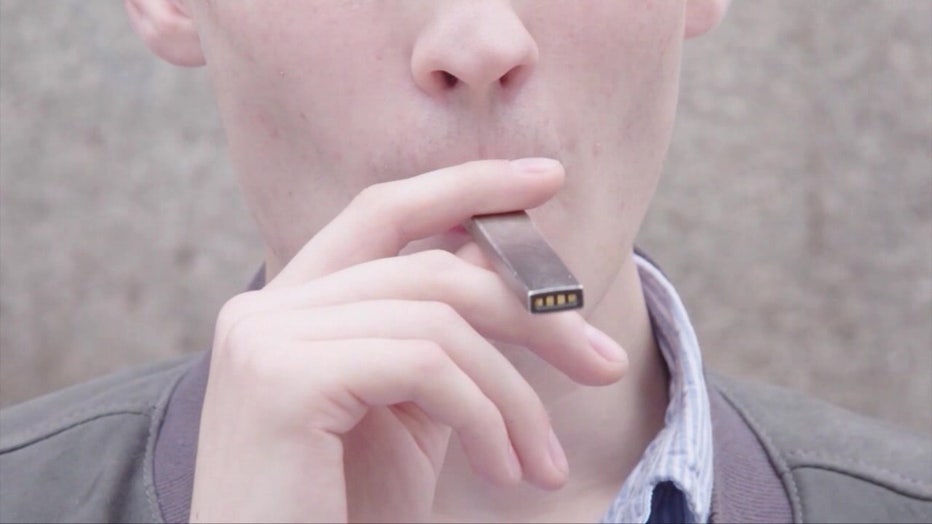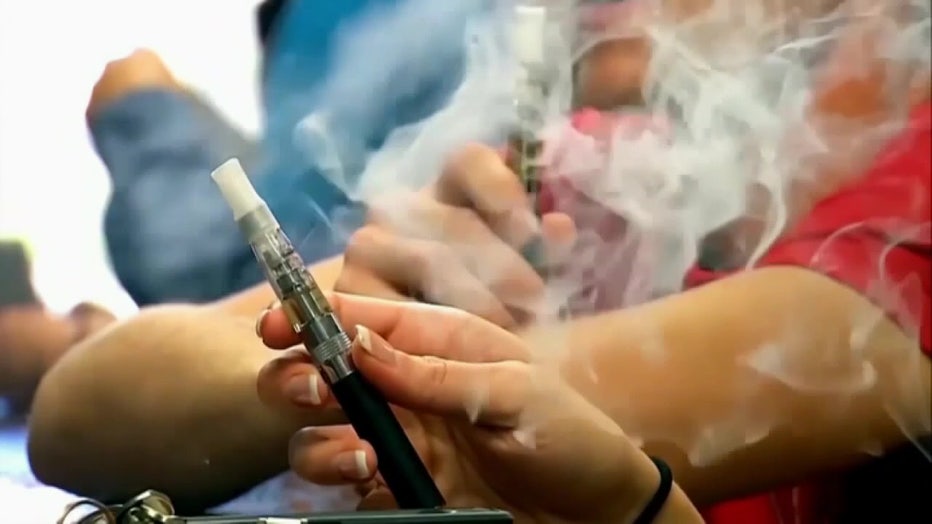'Great American Smokeout' tackles vaping among teens, young adults
ST. PETERSBURG, Fla. - Health departments across the country teamed up with American Cancer Society Thursday to help people make a plan to quit smoking.
The "Great American Smokeout" dates back more than four decades. But, Pinellas County health department employees and doctors said they're fighting a more popular product than traditional cigarettes among teens — vaping.
"The ramifications of switching someone from tobacco to vaping is horrendous, and it's seen more in younger people," Dr. John Brock, a cardiothoracic and vascular surgeon at Bayfront Health.
RELATED: Text program helps teens still struggling with vaping addiction
Brock said over the past few years, studies have shown there’s more harmful chemicals in vaping than in tobacco. He also said some people require temporary heart-lung machines to survive, and some, he said, don’t survive.

"It’s like anything else. It’s like a lot of the drugs that are used that are on the street. You just don’t know what you’re getting, and one dose could do a significant amount of damage for a long, long time," Brock said. "You don’t know if that’s going to be you today or tomorrow. I wouldn’t take the risk," he said.
Noliyanda James, a tobacco policy coordinator for the Pinellas County Health Department, said since about 2015, they’ve adapted their program to address the rise in e-cigarettes among young people and some adults.
James and others in the Department went to local businesses and groups in the community Thursday, passing out information about resources to help people quit smoking.
MORE: Long COVID could be aging organs faster by 3-4 years, research shows
"A lot of youth think they’re invincible, or it won’t happen to them, so when you have an adult coming in saying ‘you shouldn’t smoke,’ or ‘you shouldn’t vape,’ they’re just like, ‘oh whatever. Nobody cares,’" James said. "But when they hear it from another young person who looks like them, who has been through what they’ve been through, knows the stresses of being a teenager, that message really resounds."
James said they offer the program Students Working Against Tobacco in schools across the state for this reason.
According to a study just released by the CDC and the FDA, one in 10 middle and high schoolers said they used a tobacco product in the past 30 days. E-cigarettes were the most popular choice.

A little more than 9% said they used an e-cigarette compared to just under 2% who said they smoked cigarettes.
According to Brock, in the last six months, Bayfront created a lung screening program. To qualify, you have to be between 50 and 80-years-old, asymptomatic, a current or former smoker, a 20-pack or more year smoking history, and you need a prescription.
READ: Lived trauma drives Crisis Center of Tampa Bay CEO's passion for helping others
You can determine your pack years by multiplying the number of packs smoked per day by the number of years you’ve smoked.
According to Brock, they look for lung nodules in the screening. It can reduce the mortality rate by 20% for people who develop cancer. Lung cancer, he said, has a 21% survival rate. Call 727-893-6365 to talk to a nurse about the screening program.
Tobacco free Florida also offers a 24/7 phoneline to help people quit, a starter kit with free nicotine patches and a quit text line with tips to help you. Those resources and more are on Tobacco Free Florida’s website.

